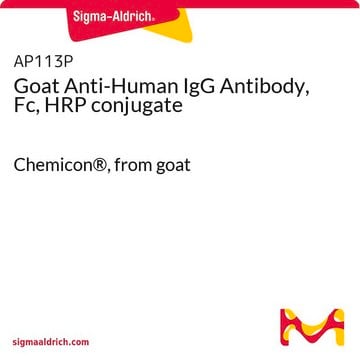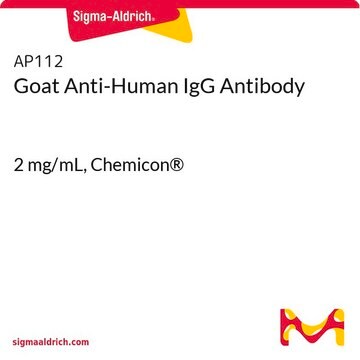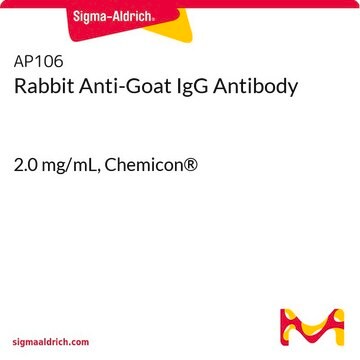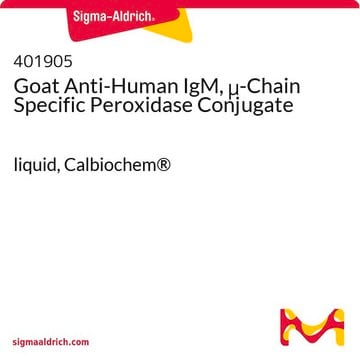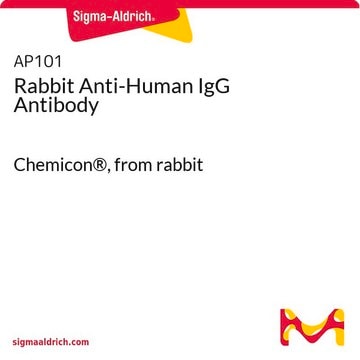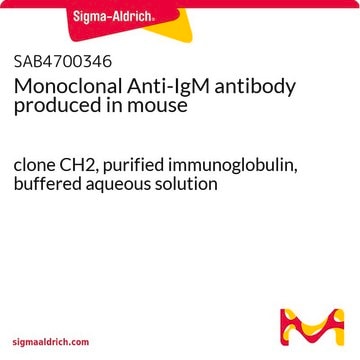MABX1901
Anti-human IgG (1mg) KC
from mouse
About This Item
Productos recomendados
biological source
mouse
antibody form
purified antibody
antibody product type
secondary antibodies
clone
monoclonal
species reactivity
human
technique(s)
ELISA: suitable
immunodiffusion: suitable
isotype
IgG2b
General description
Immunoglobulin G (IgG), an immunoglobulin isotype, is the most abundant protein in human serum and constitutes 10-20% of plasma protein. It is composed of glycoproteins comprising 82-96% of proteins and 4-18% of carbohydrates. IgG is further classified into IgG1, IgG2, IgG3, and IgG4 subclasses. IgG consists of four polypeptide chains, with two heavy chains (γ chains) and two light chains (κ or λ chains), which are linked by inter-chain disulfide bonds. It is secreted by B lymphocytes and found in extracellular fluids and blood.
Specificity
Immunogen
Application
Biochem/physiol Actions
Quality
Physical form
Other Notes
¿No encuentra el producto adecuado?
Pruebe nuestro Herramienta de selección de productos.
Storage Class
12 - Non Combustible Liquids
wgk_germany
WGK 2
flash_point_f
Not applicable
flash_point_c
Not applicable
Certificados de análisis (COA)
Busque Certificados de análisis (COA) introduciendo el número de lote del producto. Los números de lote se encuentran en la etiqueta del producto después de las palabras «Lot» o «Batch»
¿Ya tiene este producto?
Encuentre la documentación para los productos que ha comprado recientemente en la Biblioteca de documentos.
Los clientes también vieron
Contenido relacionado
Products and support for mpox research, offering world-class reagents for immunoassay and molecular assay development.
Products and support for mpox research, offering world-class reagents for immunoassay and molecular assay development.
Products and support for mpox research, offering world-class reagents for immunoassay and molecular assay development.
Products and support for mpox research, offering world-class reagents for immunoassay and molecular assay development.
Nuestro equipo de científicos tiene experiencia en todas las áreas de investigación: Ciencias de la vida, Ciencia de los materiales, Síntesis química, Cromatografía, Analítica y muchas otras.
Póngase en contacto con el Servicio técnico

